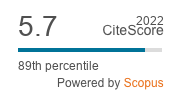Black soldier fly larvae (BSFL) are widely used in recycling and upcycling of nutrients in agri-food by-products, but low and inconsistent BSFL rearing performance (i.e. larval growth, bioconversion rate, and substrate reduction) has been identified as a key challenge. The aims of this research were two-fold: (1) validate an existing closed rearing system design; and (2) assess whether a microbial inoculum derived from the rearing residue increases rearing performance. In controlled bench-scale experiments, BSFL were reared on tomato pomace (TP) and white wine pomace (WWP), along with food waste as control substrate. The two aims were assessed based on the following response variables: larval mass, substrate reduction, residue properties (i.e. pH, temperature, moisture content), and larval intestinal and residue microbiota. Higher BSFL mass (by 5.1 mg dry mass) at harvest on WWP and substrate reduction on TP (by 11.7% dry mass) in the closed system compared to the open system confirmed the potential of closed systems for rearing performance improvements of agri-food by-products. The rearing system also affected the residual moisture content and temperature, but only had a small effect on microbiota. Performance improvements by the closed rearing system design may be outweighed by insufficient aeration with pasty substrates and higher operational efforts for aeration and larval separation from the high-moisture residues. In contrast to the rearing system design, addition of the residue-derived microbial inoculum did not result in improved performance, nor did it alter intestinal and residue microbiota. Missing performance improvements could have been due to absent or low numbers of probiotic bacteria. The success of microbial substrate supplementation could be improved by studying effects of larval-associated microbes and developing cultivation methods that selectively amplify the beneficial (yet unknown) members of the microbial community. Our investigations aimed to increase the valorisation of low-value agri-food by-products in BSFL rearing.
RESEARCH ARTICLE
Effects of rearing system and microbial inoculation on black soldier fly larvae growth and microbiota when reared on agri-food by-products
M. Gold Related information
1ETH Zurich, Sustainable Food Processing, Schmelzbergstrasse 9, 8092 Zurich, Switzerland.
2Eawag, Department of Sanitation, Water and Solid Waste for Development (Sandec), Überlandstrasse 133, 8600 Dübendorf, Switzerland.
#these authors contributed equally to this work
, T. Fowles Related information2Eawag, Department of Sanitation, Water and Solid Waste for Development (Sandec), Überlandstrasse 133, 8600 Dübendorf, Switzerland.
#these authors contributed equally to this work
3University of California, Department of Entomology and Nematology, Briggs Hall, Davis, CA 95616, USA.
#these authors contributed equally to this work
, J.D. Fernandez-Bayo Related information#these authors contributed equally to this work
4University of California, Davis, Department of Biological and Agricultural Engineering, Bainer Hall, Davis, CA 95616, USA.
, L. Palma Miner Related information4University of California, Davis, Department of Biological and Agricultural Engineering, Bainer Hall, Davis, CA 95616, USA.
, C. Zurbrügg Related information2Eawag, Department of Sanitation, Water and Solid Waste for Development (Sandec), Überlandstrasse 133, 8600 Dübendorf, Switzerland.
, C. Nansen Related information3University of California, Department of Entomology and Nematology, Briggs Hall, Davis, CA 95616, USA.
, H.N. Bischel Related information5University of California, Department of Civil and Environmental Engineering, Ghausi Hall, Davis, CA 95616, USA.
, A. Mathys Related information1ETH Zurich, Sustainable Food Processing, Schmelzbergstrasse 9, 8092 Zurich, Switzerland.
*Corresponding author: alexander.
*Corresponding author: alexander.
Journal of Insects as Food and Feed: 8
(2)- Pages: 113 - 127

Published Online: July 22, 2021
Abstract
Keywords: Hermetia illucens, bioconversion, feed, food waste, microbiota
2022 Journal Impact Factor
5.7
source: Journal Impact Factor 2023™ from Clarivate™

Institutional Offers
For institutional orders, please contact [email protected].
Purchase Options
-
G. Daş, M.M. Seyedalmoosavi, K. Schleifer, M. Mielenz and C.C. Metges
-
-
M. Barrett, S.Y. Chia, B. Fischer and J.K. Tomberlin
-
D.G.A.B. Oonincx and M.D. Finke
-
G. Bosch and K.S. Swanson
-
K.B. Barragan-Fonseca, M. Dicke and J.J.A. van Loon
-
A. van Huis
-
M. Tschirner and A. Simon
-
S. Kelemu, S. Niassy, B. Torto, K. Fiaboe, H. Affognon, H. Tonnang, N.K. Maniania and S. Ekesi
-
S. Diener, C. Zurbrügg and K. Tockner
Now available: Open Access JIFF Special Issue as follow-up of the book 'Insects as food and feed: from production to consumption'
read more



